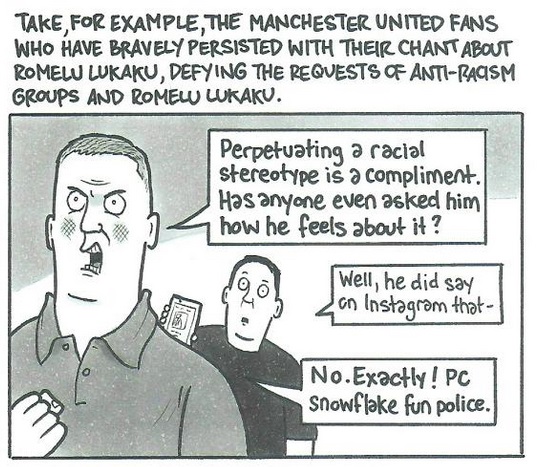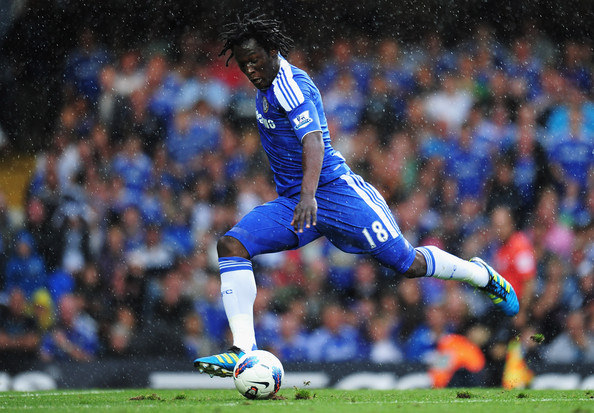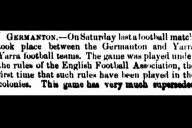As a society, we have certain imaginations of the black body. It is perpetually big, strong, dominant. We have expectations of how it will move, walk, gesture and act. It is Serena Williams dancing after winning a Grand Slam and Piers Morgan questioning her “crip walking”. I wonder: do we have language that describes other bodies with real specificity? When I ‘walk black’, ‘talk black’ or ‘move black’, you have already decided what that is.
The imagined black body is a caricature – one without pluralism, diversity, or a mind of its own. A monolith. Claudia Rankine describes it best in her poetry collection Citizen, “The world out there insisting on this only half concerns you. What happens to you doesn’t belong to you, only half concerns you. It’s not yours. Not yours only.”
What happens to your black body, how it is seen, heard and characterised isn’t only yours. It is for public consumption. We see this in the way Serena Williams’ body is consistently dissected. Caroline Wozniacki, an apparent friend of Williams, decided to put towels in her chest and butt to look more like her. It looked like a bad minstrel attempt minus the blackface. Consider how Maria Sharapova talks about Williams body, and her imagination of its hulking size. “First of all, her physical presence is much stronger and bigger than you realize watching TV…She has thick arms and thick legs and is so intimidating and strong. And tall, really tall.” Sharapova is 6’2 and Williams is 5’9. So clearly, Williams is so much bigger.
The imagination is far-reaching and historic.
“We have something called the ‘nigger’, who doesn’t in such terms exist in any such country in the world. I didn’t invent it, white people invented him. I have always known, what you were describing was not me and what you were afraid of was not me. It had to be something else, you invented it so it had to be something you were afraid of. And you invested me with it. I’ve always known that I am not the nigger. And if it’s true that your invention reveals you, then who is the nigger?” – James Baldwin
It draws me to think about football, and more specifically the infamous Romelu Lukaku chant, its imaginations of his body, his penis and how big it may be. Who invented this idea that all black men have a large, to quote the chant, “24-inch penis”? Who imposed this imagination as Baldwin puts it, the “nigger” onto Lukaku? Because he didn’t invent it, and even when he politely asked for fans to “move on” from the song he was met with “we’re Manchester United, we’ll sing what we want!” in the following game. So it doesn’t matter if you reject the presumption of your body that it doesn’t reflect you because, to quote Rankine once more, “you are you even before you grow into understanding you,” and what you are only “half concerns you. It’s not yours. Not yours only.”

The “positive discrimination” of a Manchester United fan. Source: David Squires in The Guardian.
But let’s unpack the commentary about the Lukaku chant. How it is soaked with ideas that chants about him being well-endowed are an example of “positive discrimination”. This grotesque myth has been used for centuries to reduce the black body to its physical features, and to divorce it from its humanity. Wesley Morris, pop culture writer for The New York Times, recently wrote, “I know the fantasy exists. It renders black men desired on one hand and feared on the other.”
How does it do that? In the piece, Morris references an article from 1903 where William Lee Howard, a Baltimore doctor, argued integration in America was impossible because black people were savages. “When education will reduce the large size of the Negro’s penis,” he said, “as well as bring about the sensitiveness of the terminal fibers which exist in the Caucasian, then will it also be able to prevent the African’s birthright to sexual madness and excess.”
The barbarism and savagery that is indelibly attached to that stereotype cannot be mistaken as faint praise. It’s intrinsically linked in how media and society at large talks about black athletes, and in this instance a black footballer. We reduce the black body to its physicality, and in many cases its imagined physicality. It’s from that pigeonholing we decide what a black footballer will become.
We only need to look at how black footballers are discussed. Willy Sagnol, former French international and now assistant manager at Bayern Munich, commented on the “typical African player” while he was the manager of Bordeaux in 2014. “The advantage of the typical African player is that he’s not expensive, is generally up for a fight, someone you could qualify as powerful on the pitch. But football isn’t only that … it’s also about technique, intelligence and discipline. You need a bit of everything,” Sagnol said. So black footballers weren’t able to show the requisite “technique, intelligence and discipline” for him. An entire continent of potential footballers completely unaware.
He later clarified his comments but they were just as bad. “If through my lack of clarity and imperfect semantics, I made people feel shocked, humiliated or hurt, I am sorry,” he said. “Given that we were talking about football, the intelligence I mentioned was obviously tactical intelligence. In no way was I talking about intelligence in the literal sense of the word, concerning individuals.” Again, an entire continent of people lacking football intelligence.
One of the players who is a favourite of pundits to point out for his seeming lack of intelligence is Romelu Lukaku. A player who is only behind Ronaldo (Brazilian), Raul, Leo Messi and Sergio Aguero for most goals scored in Europe before turning 23. He contributed half of Everton’s goals last season, is among four players to score 80 Premier League goals before turning 24 and is only behind Sergio Aguero for most goals in the Premier league since 2012/13 season.
Here are some quotes from the writers and pundits who believe him to be unintelligent:
“If you offered me the choice between Morata and Lukaku, I wouldn’t even think about it. I would pay £20m or £30m more if I had to and I would bring in Morata. That is because I would always prefer an intelligent player in my team. Even if he doesn’t score as many goals, even if he doesn’t do whatever he needs to.” – Mina Rzouki
“Lukaku’s not bright enough to play with Eden Hazard and Cesc Fabregas. He needs the ball over the top, and he’ll get that at Manchester United.” – Paul Merson
“You judge a player by the decisions he makes and Lukaku doesn’t make enough good ones. He only sees the goal, he doesn’t have enough awareness of other players. He puts his head down and runs hard and fast. Is he an intelligent player? Not for me.” – Martin Keown
It’s in sharp contrast to his former coach Roberto Martinez who worked with him for a number of years. “The first time I spoke with him I realised that he was not a typical No. 9, centre forward, power whatever,” said Martínez. “He is a thinker. He is a really knowledgeable man. He speaks six or seven languages [French, Dutch, English, Spanish and Portuguese among them] and is someone who looks at games in a very different way. He is like a manager in the way that he looks at movement. I’ve been very surprised with that side of him. He speaks about games that he’s seen, different moves – not the normal conversation that you would have with an ordinary 20-year-old footballer, believe me.”
But the reality is it doesn’t matter if Lukaku has broken goalscoring records as a younger player and continues to excel in the Premier League. There’s an imagination of him, his body and its capabilities. Or as Rankine puts it, “You are everywhere and you are nowhere in the day.” Lukaku is everything and nothing. We see him and we don’t. We see black bodies, and we don’t.
Ahmed Yussuf is a Melbourne based journalist and founder of race and politics podcast Race Card.
Feature image courtesy of Wshjackson via Flickr.
















